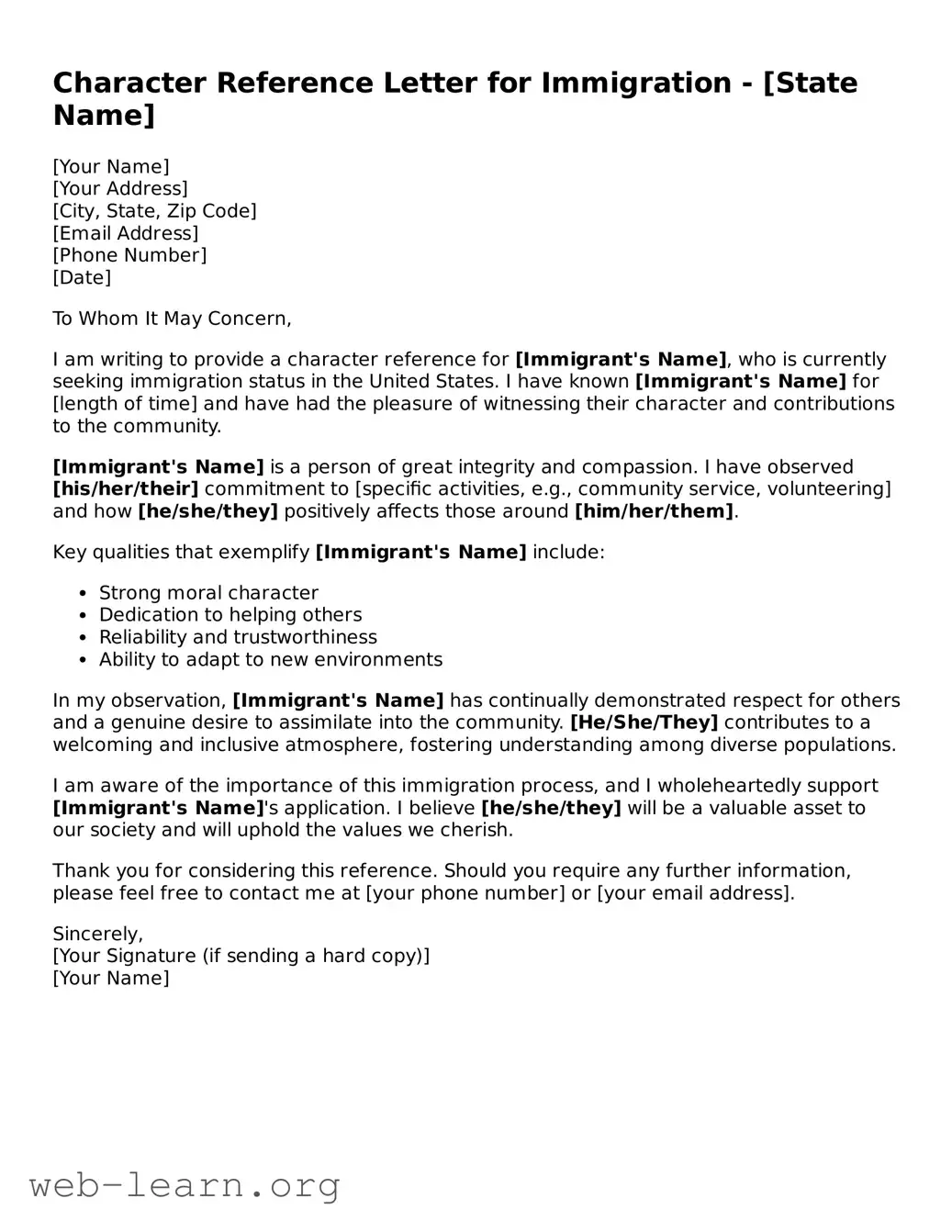Character Reference Letter for Immigration - [State Name]
[Your Name]
[Your Address]
[City, State, Zip Code]
[Email Address]
[Phone Number]
[Date]
To Whom It May Concern,
I am writing to provide a character reference for [Immigrant's Name], who is currently seeking immigration status in the United States. I have known [Immigrant's Name] for [length of time] and have had the pleasure of witnessing their character and contributions to the community.
[Immigrant's Name] is a person of great integrity and compassion. I have observed [his/her/their] commitment to [specific activities, e.g., community service, volunteering] and how [he/she/they] positively affects those around [him/her/them].
Key qualities that exemplify [Immigrant's Name] include:
- Strong moral character
- Dedication to helping others
- Reliability and trustworthiness
- Ability to adapt to new environments
In my observation, [Immigrant's Name] has continually demonstrated respect for others and a genuine desire to assimilate into the community. [He/She/They] contributes to a welcoming and inclusive atmosphere, fostering understanding among diverse populations.
I am aware of the importance of this immigration process, and I wholeheartedly support [Immigrant's Name]'s application. I believe [he/she/they] will be a valuable asset to our society and will uphold the values we cherish.
Thank you for considering this reference. Should you require any further information, please feel free to contact me at [your phone number] or [your email address].
Sincerely,
[Your Signature (if sending a hard copy)]
[Your Name]
